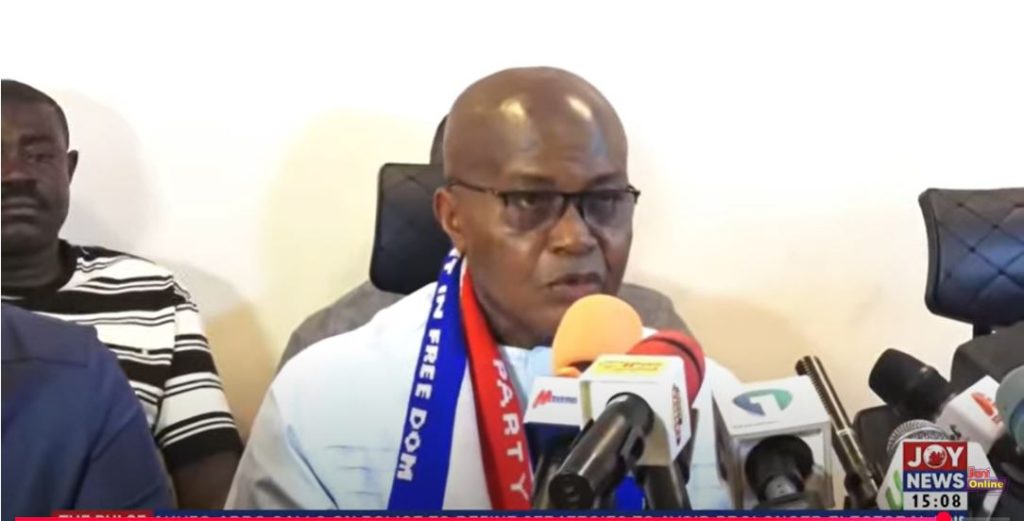In the wake of a significant election defeat, political parties must demonstrate resilience, clarity, and decisive leadership to rebuild public trust and reorganise effectively. The recent request by the family of Stephen Nitm, National Chairman of the New Patriotic Party (NPP), to excuse him indefinitely from official duties and active politics on health grounds, while understandable from a human perspective, raises critical questions about the party’s path forward.
From an organisational and HR standpoint, especially in a public-facing institution like a political party, leadership transitions must be handled with transparency and accountability.
An indefinite leave of absence, particularly for a key figure like the National Chairman, creates uncertainty, hampers decision-making, and leaves a void in strategic direction. Here’s why a resignation, though difficult, would be more beneficial for the party and its stakeholders:
Clarity and Stability in Leadership
A struggling party needs unambiguous leadership to navigate post-election challenges, redefine its vision, and rally its base. An indefinite absence leaves the party in limbo, with no clear timeline for resolution.
Resignation, while painful, allows for the immediate appointment of an interim or permanent successor, ensuring continuity and focus during a critical rebuilding phase.
Accountability to the Public and Party Members
Political parties are not private entities; they are public institutions accountable to voters, members, and donors. Prolonged uncertainty about the chairman’s role undermines confidence in the party’s governance.
A resignation demonstrates respect for the party’s needs and allows for a dignified transition, whereas an open-ended absence risks perceptions of indecision or dysfunction.
Organisational Health and Renewal
After a defeat, parties must critically assess their leadership structures and make tough decisions to regain momentum. Holding onto a titular leader who cannot actively contribute delays necessary reforms. Resignation opens the door for fresh leadership that can energise the base, address internal divisions, and re-engage with the electorate.
Duty to the Party’s Mission
Leaders in public service have a responsibility to prioritise the collective good over individual tenure. If health challenges prevent the chairman from fulfilling his duties, stepping aside honourably ensures the party can pursue its mission without compromise. This aligns with best practices in organisational management, where succession planning is key to sustainability.
Setting a Precedent for Graceful Exits
How leaders handle transitions sets a cultural tone for the organisation. A resignation framed as a sacrifice for the party’s future fosters respect and unity. Conversely, an indefinite absence may inadvertently signal that the party is unable to make difficult but necessary choices.
A Way Forward
The NPP’s leadership should engage compassionately with Chairman Nitm and his family to discuss a dignified exit strategy.
This could include a public statement acknowledging his contributions, a clear transition plan, and assurances of support for his health and well-being. Simultaneously, the party must expedite processes to elect or appoint a successor capable of steering the NPP toward recovery.
In times of crisis, strong institutions are defined by their ability to act decisively. For the NPP to regain its footing, it must embrace transparency, renewal, and leadership that is fully present, not just in title, but in action.
DISCLAIMER: The Views, Comments, Opinions, Contributions and Statements made by Readers and Contributors on this platform do not necessarily represent the views or policy of Multimedia Group Limited.
DISCLAIMER: The Views, Comments, Opinions, Contributions and Statements made by Readers and Contributors on this platform do not necessarily represent the views or policy of Multimedia Group Limited.


